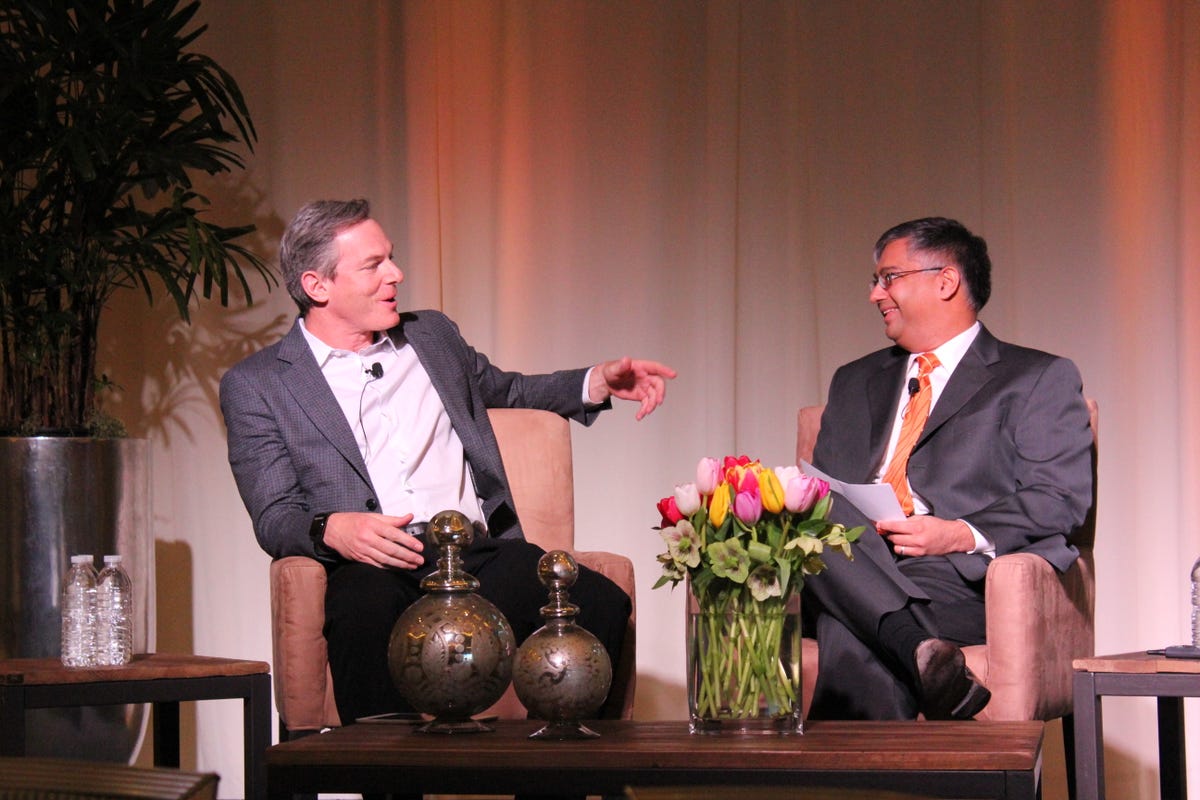
Roger Cheng/CNET
ATLANTA–Qualcomm Executive Chairman Paul Jacobs had a story he couldn’t wait to get off his chest.
Jacobs, who was speaking at an industry conference on Wednesday, interrupted the moderator, Rutberg analyst Rajeev Chand, insisting on telling an anecdote about its work with a digital brain and rats.
Qualcomm is working to build a digital brain that works like the human brain. Jacobs recounted the tale of someone at the Massachusetts Institute of Technology who hooked up the digital brain to a rat and had it learn to run a maze. After wiping the memory from the rat, it couldn’t run the maze again until it was hooked up to the digital brain again.
Taking it further, Jacobs said another rat was hooked up to that digital brain, and instantly knew how to run the maze.
“Scary stuff, right?” Jacobs said.
That’s just one of the breakthroughs that will help technology shake up the healthcare industry in a big way over the next 10 to 15 years. While Qualcomm’s core business revolves around building chips for smartphones and tablets, it has its eye on the future, with healthcare a major initiative for the company.
Jacobs talked about sensors that will eventually be implanted in your blood stream. He noted one trial involved a device smaller than a grain of sand that can tell a person two weeks in advance that they will have a heart attack.
“How would you like to get that call?” he quipped.
Jacobs answered a slew of questions during his fireside chat. Fresh off of Facebook’s acquisition of Oculus for $2 billion, he was game to weigh in on the deal.
“They’re on a roll,” he said.
While Jacobs declined to provide his opinion of the valuation of the deal, saying it was hard to judge the valuation nowadays. But he said that ultimately the price tag doesn’t matter.
“If you have a vision for a company, then that initial number you pay isn’t the critical thing,” he said. “It’s what you can do with it on the back end.”
Jacobs said that it was possible that virtual networking could become a major computing platform, but said it would depend on killer apps. Still, he was skeptical virtual reality would replace genuine face-to-face contact.
He also said it remains unclear whether the future would be more virtual reality vs. augmented reality, with images and data popping up over real imagery. Down the line, he said he figured people would find a way to tap into the optic nerve, as opposed to wearing large helmets.
Still, he said he was happy about Facebook buying Oculus, as it leads to more hardware requiring sensors, power-saving processors, Bluetooth audio tech, and light-weight components — areas where Qualcomm dwells in.
Jacobs, meanwhile, weighed in on average sales prices for smartphones, acknowledging that he sees them coming down eventually, although not rapidly or dramatically. Conversely, he sees average sales prices for low-end phones rising, particularly in emerging markets where consumers are upgrading from a feature phone to a smartphone.
Still, he says there will remain demand for a higher end phone. He noted that the smartphone isn’t perfect now, and that there are enhancements and new features that will still drive sales.
“We have ideas to fix a lot of things,” he said.



